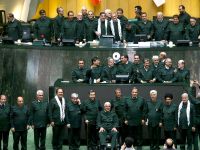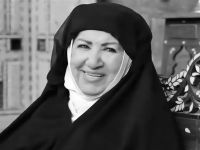Demand for Egyptian non-alcoholic beer and beverages continues to brew both in Egypt and across Arab nations, where the Islamic religion frowns upon the consumption of alcohol.
'Muslim-friendly' beer beverage sales have boomed across the region ever since Egypt's top brewer, Al Ahram Beverages Company (ABC) introduced the product eight years ago. The company, which is registered on the Cairo and London stock exchanges, maintains its virtual monopoly over domestic production, and 1999 sales surged by 79 percent to 36.7 million liters from 20.5 million liters in 1998, Middle East Times reported.
ABC's main local competition comes from business tycoon Samih Sawiris of Orascom, who teamed up with Germany's Lowenbrau, to set up a $30 million brewery in a Red Sea resort. The venture, called Al Gouna Beverage Company, started producing two brands of beer in 1999, aiming to capture 25% of the local market from ABC. Al Gouna and ABC also fight head-to-head in the wine and soft drink segments.
In 2000, ABC is expecting sales of its two brands - fruit-flavored non-alcoholic beverage Fairouz and Birell, brewed under license from Swiss firm Suisse Hurlimann - to surpass sales of their numerous alcoholic beers, which sold 39 million liters in 1999.
Steven Keefer, ABC Director of Investments, intimated the secret of the company's success as being "essentially religious," as the novel beverages do not violate Islamic law. "We are not in competition with soft drinks companies, because non-alcoholic beer is a more luxurious and expensive beverage," Keefer commented. Alcohol-free drinks also strategically avoid Egypt's 100% alcohol tax, and can be priced cheaper than regular beer.
Nevertheless, products like Birell and Fairouz have not been totally successful in avoiding the Islamic "beer taboo," as Kuwait still requires laboratory certificates from non-alcoholic beer importers after complaints that some brands did in fact contain high alcohol concentrations. In Saudi Arabia, alcohol consumption is punishable by whipping, and experts claim that ABC must succeed in penetrating the Kingdom and other Gulf nations if it is to successfully introduce new products in the future.
Regional trends indicate that ABC may have much success to "toast." Company sales in 1999 increased by 46 percent on the year, from E£207.6 million to E£303.4 million. Egypt supplied Saudi Arabia with an impressive 4% of its non-alcoholic beer imports in 1998, according to the Saudi central statistics bureau. Sales of ABC products in Kuwait have flourished since the government removed an import ban in February.
In a major corporate victory, ABC recently secured the exclusive right from Irish brewers Guinness to produce its non-alcoholic 'Kaliber' beer, and to export it to 27 nations, most of which are Arab countries, the Journal of Commerce reported.
In addition to the non-alcoholic products, ABC will soon begin brewing alcoholic beers under license from Guinness and Carlsberg after opening a state-of-the-art beer facility. While production of Green-label Carlsberg is scheduled to begin in late June, Guinness will be manufactured starting in the summer. Carlsberg will be sold in bottles, cans and draught kegs, with Guinness to be initially offered only in bottles.
ABC's new 1 million-hectoliter brewery in Al Obur industrial city outside Cairo opened just a few weeks ago at a cost of $43 million, and has begun brewing the company's Stella brands of local alcoholic beers. "Three years ago when we privatized ABC, the flagship beer of Egypt - Stella - was the laughing stock of the world due to its inconsistent quality," Executive Chairman Ahmed Zayat said in a company statement, adding, "...today we have the freshest beer in the world from the most modern facility."
In Egypt, only 0.7 liters of beer are consumed per capita per year, while 13.2 and 6 liters are consumed in Turkey and Tunisia/Algeria respectively.
"We want to be a full-fledged beverage company which means water, wine, alcohol, non-alcohol, soft drinks. We have all this. We are the only company in Egypt that can offer this gamut of different products," a top ABC executive told albwaba.com.
While industry estimates peg ABC's market share of the local beer and non-alcoholic beer markets at 90% and 95% respectively, the company has been negotiating distribution deals with snacks firms and bottled water companies to make up for lost revenue during winter, when beer sales normally decline.
- albawaba.com
© 2000 Mena Report (www.menareport.com)







